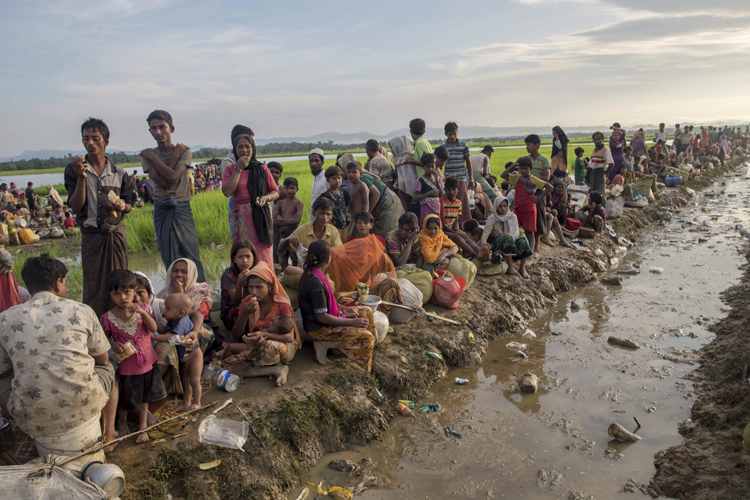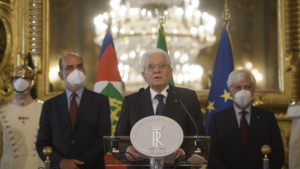
‘Show Documents or Vacate’: How Manesar Locals Evicted 500 Rohingya Families Overnight | Exclusive
In what is called by intelligence sources “Classic Examples of Community Police”, Local Panchayat in Manesar Haryana forced at least 500 Rohingya families to empty their colonies last night, leaving their goods behind.
Local residents accuse that there was an increase in criminal activities in the area after the group settled there.
After the deliberation, a mapaphayat was called by Devender Singh, which was decided that residents had to show their valid residency documents or empty the place.
“We later found that this was the result of the pressure of the local population. This is a classic example of a community police. We identify this Rohingya and will find their next settlement, “the intelligence source exclusively told CNN-NEWS18.
With several accounts, Rohingya are descendants of traders and Arab army, Turkey or Mongols who in the 15th century migrated to the state of Rakhine, previously called the Kingdom of Arakan.
Other historians say they migrate from Bangladesh in several waves, the scenery held widely among many people in Myanmar. For centuries, small Muslim minorities lived peacefully with Buddhists in the independent kingdom, with several people who advised the Buddhist aristocracy, according to historians.
Umbah occurred from the end of the 18th century when the kingdom was conquered by the Burmese and then by Britain. Britain likes Muslims, recruiting them as soldiers during World War II and complained of them against Buddhists who were in harmony with Japan when conflicts went on a rampage land.
While their status was fortified in 1947 when a new constitution was recruited – giving them legal rights and full votes – it was a short suspension.
Military coup in 1962 delivered the era of new oppression, and the 1982 law disarmed them from the status of their recognized minority ethnic groups.
Most live in Rakhine – but are refused citizenship and harassed by work movements and restrictions.
Hundreds of thousands fled to Bangladesh in successive waves of violence in 1978 and 1991-2.
Using a dialect similar to what was spoken in Chittagong in Southeast Bangladesh, Rohingya were hated by many people in Myanmar, who saw them as illegal immigrants and called them “bengali”.
After Junta was dissolved in 2011, the country saw an increase in Buddhist extremism which subsequently put aside the Rohingya and marked the beginning of the latest era of tension.
Rape, murder, burning
Sectarian violence between Sunni Rohingya Muslims and local Buddhist communities broke out in 2012, killing more than 100 people and countries separated along the religious line.
Tens of thousands fled over the next five years to Bangladesh and Southeast Asia, challenging dangerous sea travel controlled by brutal trade gangs.
Although some decades of persecution, Rohingya mostly avoid violence.
But in 2016 a small militant group and previously unknown-the Rohingya Salvation Army (ARSA)-held a series of attacks that were well coordinated and deadly on security forces.
The Myanmar military responded with large -scale security.
It is estimated that 391,000 Rohingya fled to Bangladesh in 2017, according to the United Nations, brought along the terrible stories about murder, rape, and burning.
Hero who fell
After being praised internationally for several decades of his resistance against Junta, Aung San Suu Kyi’s government then rejected concerns about violations of the Rohingya rights.
Suu Kyi defended the army behavior and in 2019 a trip to the Hague to refute the accusations of genocide in the UN High Court.
In February 2021 he was re -established by the generals he had maintained when the country experienced another coup.
Junta currently claims that the UN court does not have jurisdiction and has asked for a case to be dismissed.
The latest statistics show that as many as 850,000 Rohingya are now miserable in Bangladesh camps, with around 600,000 in the state of Rakhine.







